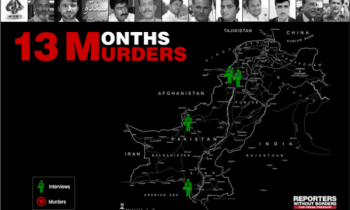WASHINGTON (AP) -- Bob Woodward's name is synonymous with anonymous sources, ''Deep Throat'' and reporting that uncovered a scandal that brought down a presidency.
Some three decades after Watergate, the outing of Woodward in the CIA leak investigation underscores the change in anonymous sourcing and revives the criticism of the media's use of unnamed officials to curry favor.
Woodward's career, say former reporters and academics, is a classic case study.
''He was the ultimate young, scrappy outsider reporter monitoring power,'' said Geneva Overholser, a former ombudsman for The Washington Post. ''Now he's so much a creature of access. He even has been quite critical of this prosecution.''
Said Todd Gitlin, a professor at Columbia University's School of Journalism: ''Access journalism has become the ends, not the means.''
Woodward dismissed the complaints, chalking it up to journalism as a ''contact sport'' and contending in an interview with The Associated Press that he faced far worse criticism of his work during Watergate.
''I was 29 when people who really knew how to shoot were around,'' he said.
In the early 1970s, Woodward, along with former Washington Post colleague Carl Bernstein, produced Pulitzer-prize winning journalism that exposed the high crimes and misdemeanors of a Republican administration and led to President Nixon's resignation.
The two reporters often relied on anonymous sources, in particular W. Mark Felt, the FBI's No. 2 unmasked this past June as Woodward's contact ''Deep Throat.'' These sources spoke confidentially for fear of losing their jobs -- or suffering a worse fate -- but felt compelled to tell of dirty tricks, slush funds and a cover-up.
Today, the motivation of officials to speak anonymously raises questions about whether they deserve the same protection.
''Journalists are trying to make the distinction between leaks that are political and leaks that are whistle-blowing,'' said Tom Rosenstiel, director of the Project for Excellence in Journalism.
At issue, said Rosenstiel, is determining the difference between ''a whistle-blower and a leaker, a spinner and a confessor.''
The Post reported on Wednesday that Woodward, an assistant managing editor, testified under oath that a senior Bush administration official told him about Valerie Plame about a month before her identity as a CIA operative was publicly revealed.
He told Special Counsel Patrick Fitzgerald, who is investigating the leak of Plame's identity, that the official talked to him about Plame in mid-June 2003.
Plame's husband, former U.S. Ambassador Joseph Wilson, had accused the administration of twisting intelligence before the Iraq war.
Former New York Times reporter Judith Miller spent 85 days in jail before testifying before the federal grand jury in the case after her source freed her from any agreement. Time magazine's Matt Cooper also testified.
I. Lewis ''Scooter'' Libby, Vice President Dick Cheney's former chief of staff, was indicted last month on one charge of obstruction of justice and two counts each of false statement and perjury in connection with Fitzgerald's investigation.
Neither Woodward nor the Post would identify the senior administration official. Woodward apologized Wednesday afternoon to the Post's executive editor, Leonard Downie Jr., for failing to tell him that he knew about Plame for two years.
Woodward's recent success in journalism and the book world has been defined by his ability to get high-level administration officials to talk, often with the promise that their words will not show up in daily print but rather months down the road in bound pages.
He has written books on the inner workings of the Bush and Clinton administrations, and the Supreme Court. In the Post on Wednesday, he said his presence in the CIA leak case stemmed from his work on his 2004 book ''Plan of Attack'' and a separate book on Bush's second term, set for release in 2006.
Former reporters and academics wondered what has happened in Washington where so many ask to be quoted without attribution and few question the motivation.
''There's a Washington standard of casually putting things off the record. It's really gone too far,'' said Adam Clymer, a former reporter for The New York Times. ''I don't know an easy way to turn it back.''
Associated Press Writer Toni Locy contributed to this report.









